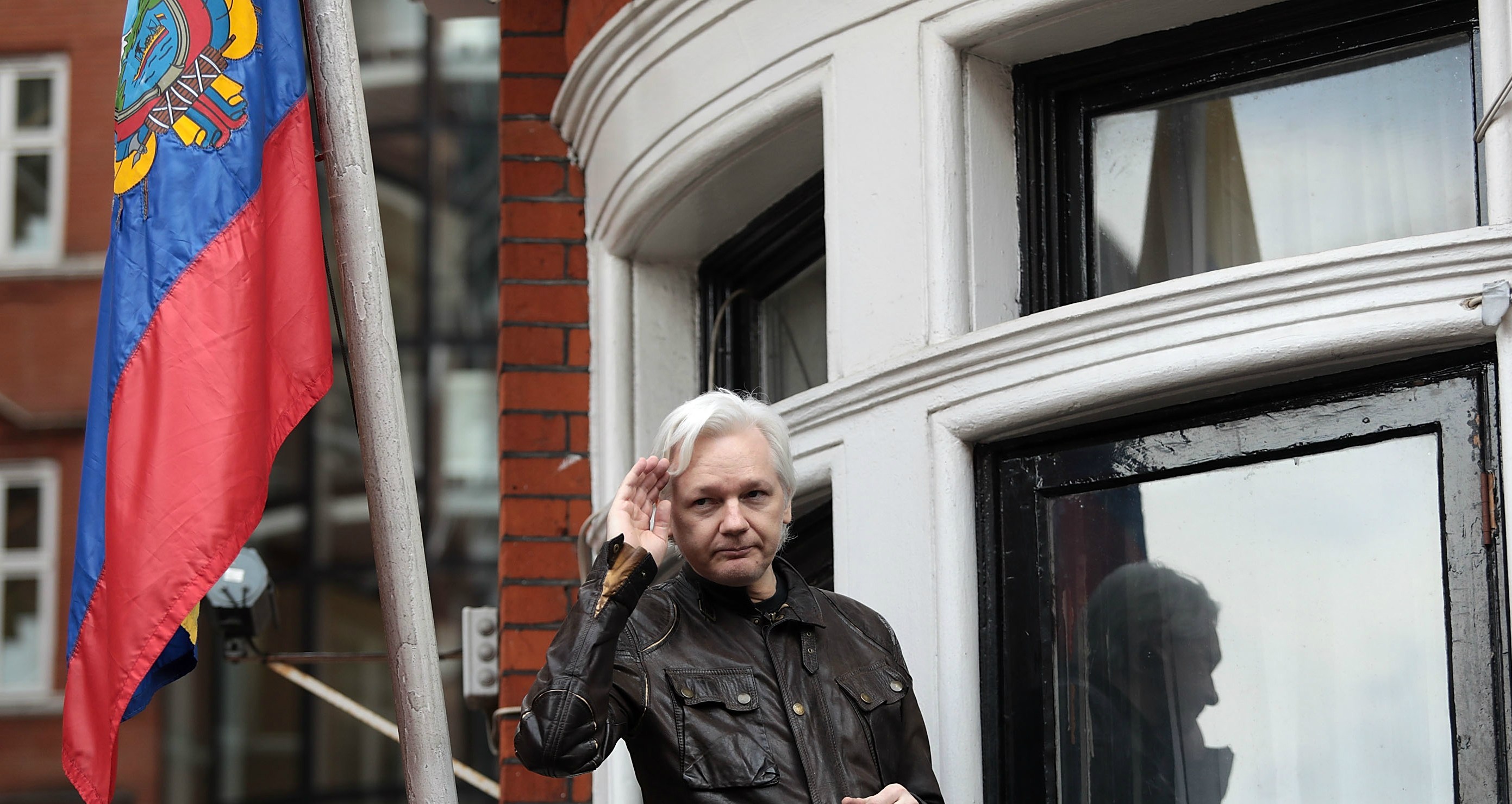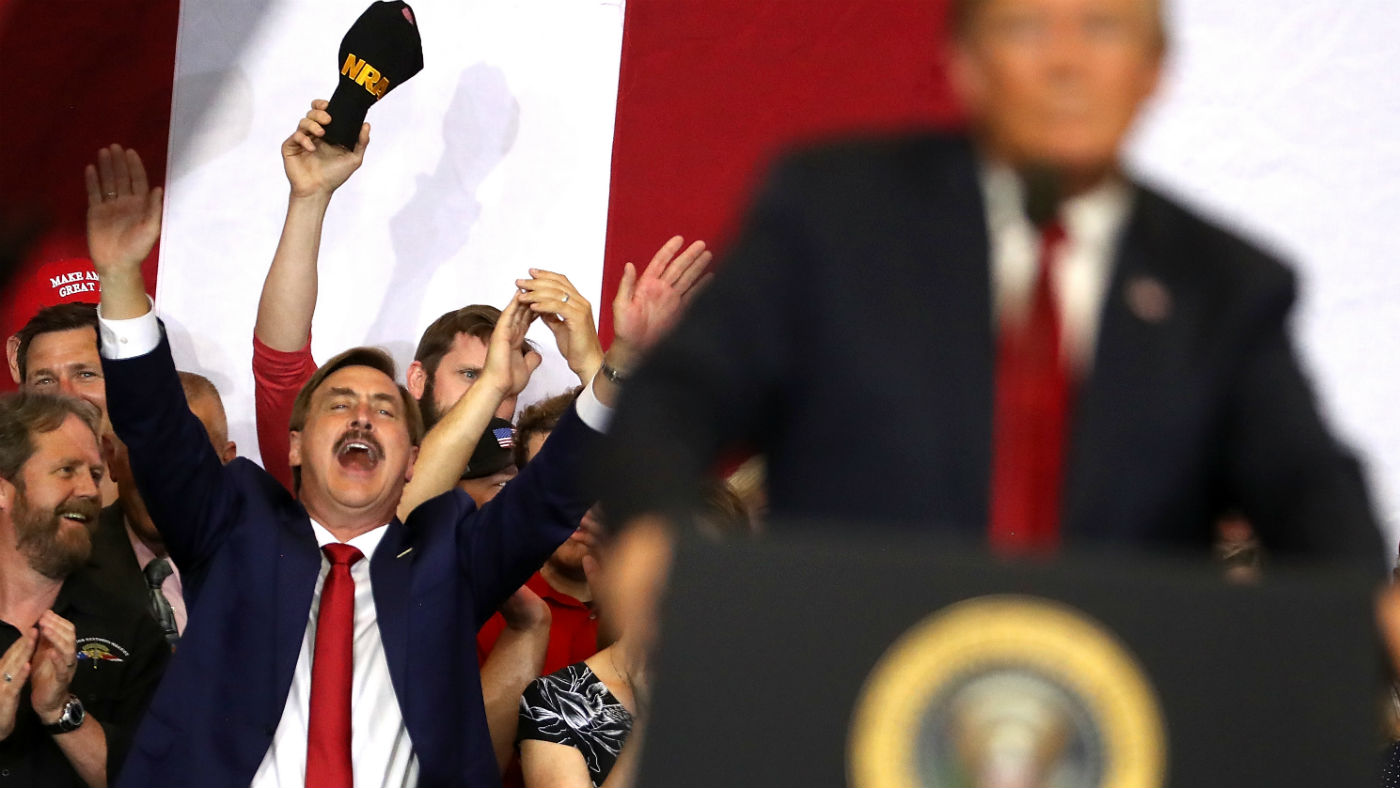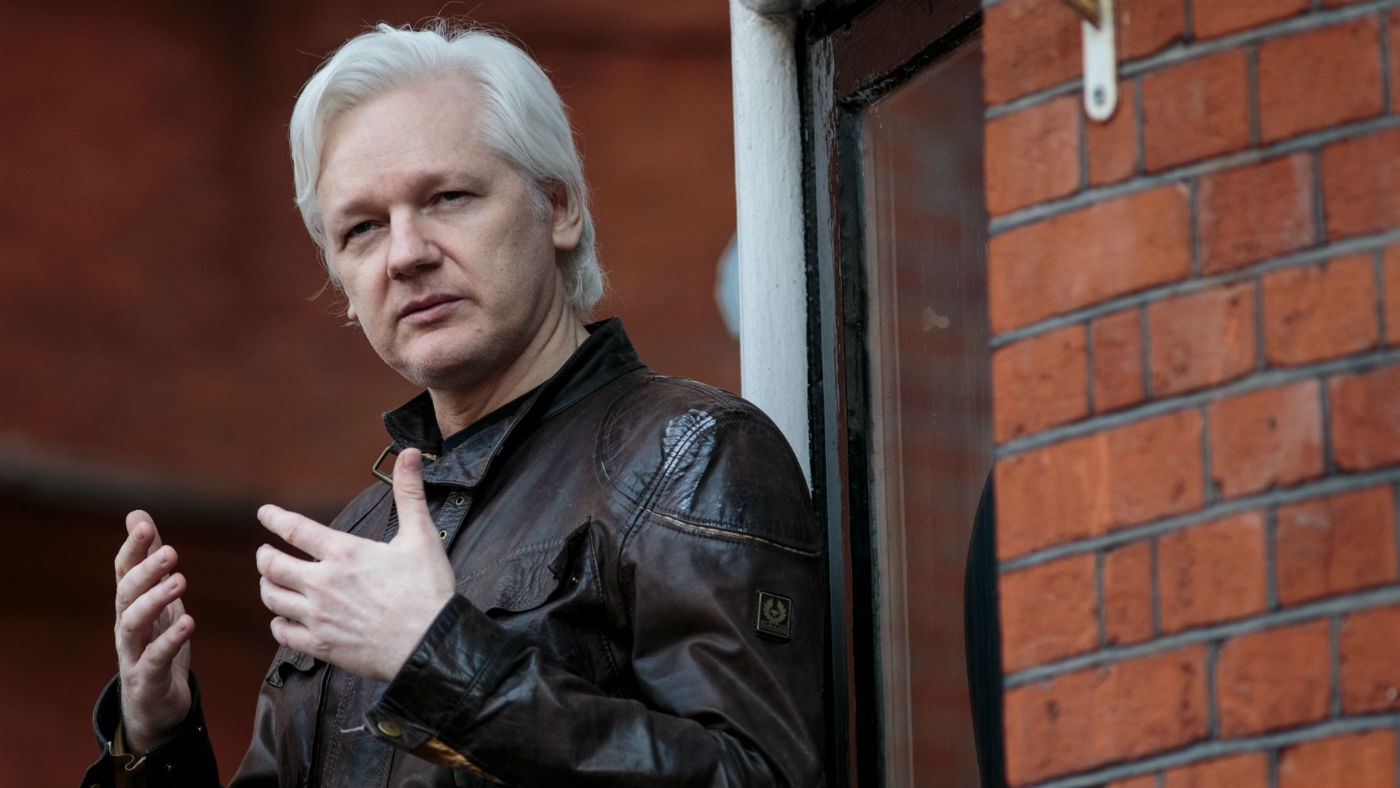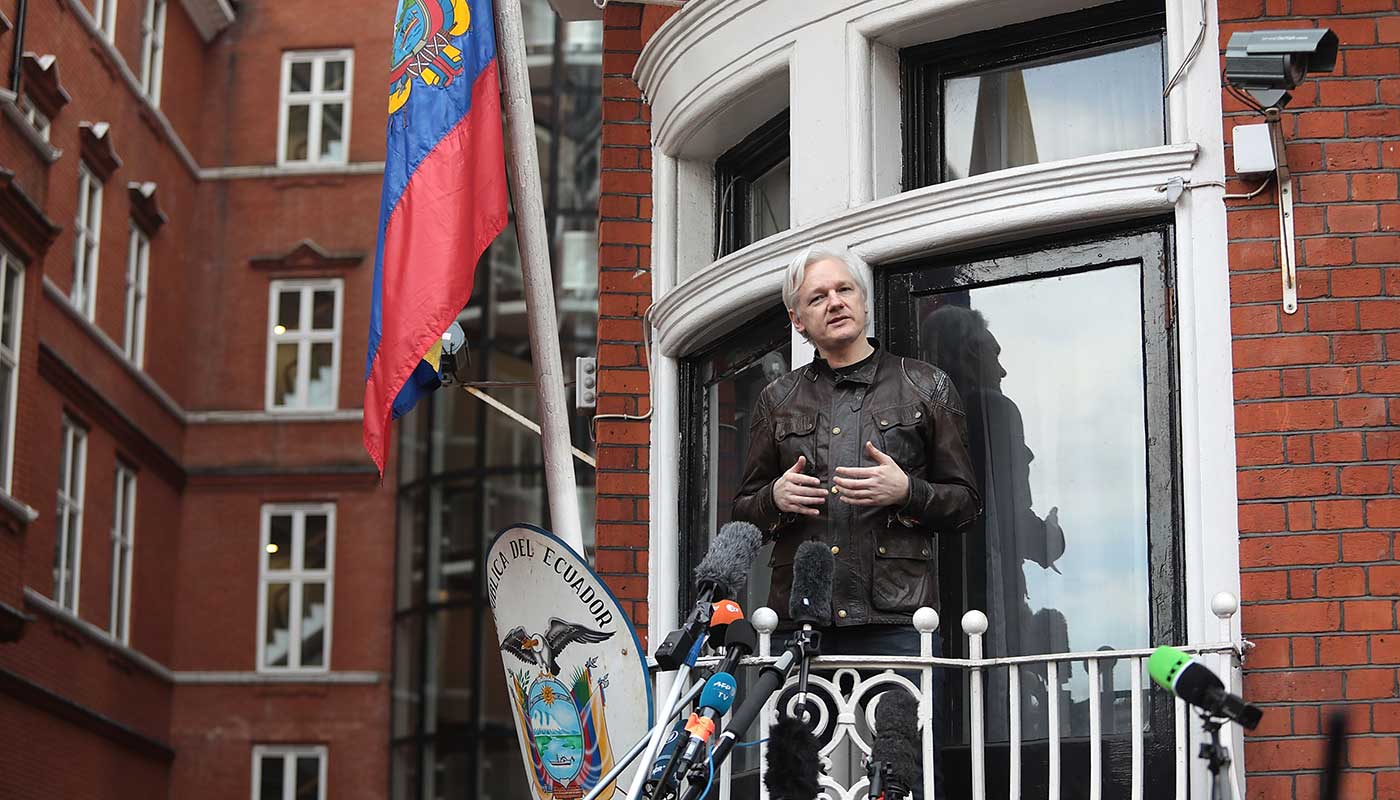Julian Assange: everything you need to know about his hacking court battle
WikiLeaks founder could face up to 175 years in prison if extradited to the US

A free daily email with the biggest news stories of the day – and the best features from TheWeek.com
You are now subscribed
Your newsletter sign-up was successful
Julian Assange is planning the next move in his legal battle against extradition to the US after suffering a crushing defeat at the Old Bailey yesterday.
“Hundreds of protesters gathered” outside the London court to support the WikiLeaks founder, including his father John Shipton and fashion designer Vivienne Westwood, who said Assange was “shining the light on all the corruption in the world”, Sky News reports.
But after Assange failed to get 18 new charges against him thrown out, what next as the extradition hearing continues?
The Week
Escape your echo chamber. Get the facts behind the news, plus analysis from multiple perspectives.

Sign up for The Week's Free Newsletters
From our morning news briefing to a weekly Good News Newsletter, get the best of The Week delivered directly to your inbox.
From our morning news briefing to a weekly Good News Newsletter, get the best of The Week delivered directly to your inbox.
What are the charges?
Australian national Assange is wanted by the US over the publication of classified documents in 2010 and 2011. And as he prepared to appear before the Old Bailey on Monday at the beginning of a four-week hearing, he was re-arrested in the court’s cells over new charges contained in a US indictment.
The 18 new charges including plotting to hack computers and conspiring to obtain and disclose national defence information.
The indictment alleges “that he conspired with army intelligence analyst Chelsea Manning to crack a scrambled password, known as ‘hash’, to a classified US defence department computer”, Sky News says.
A free daily email with the biggest news stories of the day – and the best features from TheWeek.com
The charges also offer “further details of alleged hacking plotters that Assange and his WikiLeaks colleagues are said to have recruited”, the broadcaster adds.
Assange “repeatedly sought, obtained, and disseminated information that the United States classified due to the serious risk that unauthorised disclosure could harm the national security of the United States”, according to the indictment.
The charges carry a maximum of 175 years in prison in the US.
What is his defence?
Assange’s legal team argued that the new indictment came too late for them to adequately prepare a response. Edward Fitzgerald QC, who is representing Assange, “said he had not seen his client in person for six months, in part due to the [coronavirus] pandemic”, the BBC reports.
Fellow defence lawyer Mark Summers QC said the fresh allegations had been brought “at the 11th hour” without warning or explanation, adding: “What is happening is abnormal, unfair and liable to create injustice if allowed to continue.”
But Judge Vanessa Baraitser rejected the bid to have the allegations dropped, saying the issues “must take place in the context of considering the extradition request and not before it”.
Assange, who has been in Belmarsh Prison for 16 months, has claimed that a US court is likely to convict and slap him with a life sentence, which would be “inhuman and degrading” for someone “with his mental vulnerabilities”.
His legal team have warned of “a risk Assange would take his own life if extradited”, says the Daily Mail.
In addition, “the lawyers say that if he loses, the case will set a precedent for the US government to prosecute foreign journalists and will be seized upon by repressive regimes around the world”, The Times reports.
What happens next?
Dozens of witnesses are due to be called to give evidence during the Old Bailey hearing. The judge “is expected to take weeks or even months to consider her verdict, with the losing side likely to appeallikely to appeal”, NBC News reports.
And if the court approves extradition to the US, the UK government will still have the final say on the matter.
Ahead of the hearing, human rights group Amnesty International said that prosecuting Assange could have “a chilling effect on media freedom”.
Michelle Stanistreet, general secretary for the National Union of Journalists, has also spoken out in favour of the high-profile whistle-blower, arguing that extradition “will send a clear signal that journalists and publishers are at risk whenever their work discomforts the United States government”.
“Media freedom the world over will take a significant backward step if Assange is forced to face these charges at the behest of a US president,” she said.
-
 How to Get to Heaven from Belfast: a ‘highly entertaining ride’
How to Get to Heaven from Belfast: a ‘highly entertaining ride’The Week Recommends Mystery-comedy from the creator of Derry Girls should be ‘your new binge-watch’
-
 The 8 best TV shows of the 1960s
The 8 best TV shows of the 1960sThe standout shows of this decade take viewers from outer space to the Wild West
-
 Microdramas are booming
Microdramas are boomingUnder the radar Scroll to watch a whole movie
-
 ‘Why do we have it in for prime ministers’ wives?’
‘Why do we have it in for prime ministers’ wives?’Instant Opinion Your digest of analysis from the British and international press
-
 Instant Opinion: ‘Trump’s racism is crude, but may be dangerously effective’
Instant Opinion: ‘Trump’s racism is crude, but may be dangerously effective’In Depth Your guide to the best columns and commentary on Wednesday 17 July
-
 Julian Assange launches legal challenge against the US
Julian Assange launches legal challenge against the USSpeed Read WikiLeaks founder fears he will be deported if he is forced out of Ecuadorian embassy in London
-
 Ecuador warns Julian Assange: take better care of your cat
Ecuador warns Julian Assange: take better care of your catSpeed Read Embassy ‘house rules’ for Wikileaks founder include reminder to clean his bathroom
-
 Lauri Love: alleged hacker wins appeal against US extradition
Lauri Love: alleged hacker wins appeal against US extraditionSpeed Read Brit may still face UK trial over cyberattacks on US military and government agency systems
-
 Chelsea Manning to run for US Senate
Chelsea Manning to run for US SenateSpeed Read Former army intelligence analyst once imprisoned for leaking intelligence will run for office
-
 Julian Assange's cat spotted wearing a tie
Julian Assange's cat spotted wearing a tieSpeed Read Cat posed by window in formal attire as Wikileaks founder faced questions from Swedish officials - and other tall tales
-
 Amal Alamuddin: five facts about George Clooney's fiancee
Amal Alamuddin: five facts about George Clooney's fianceeIn Depth Has the Hollywood actor 'bitten off more than he can chew' with British human rights barrister?